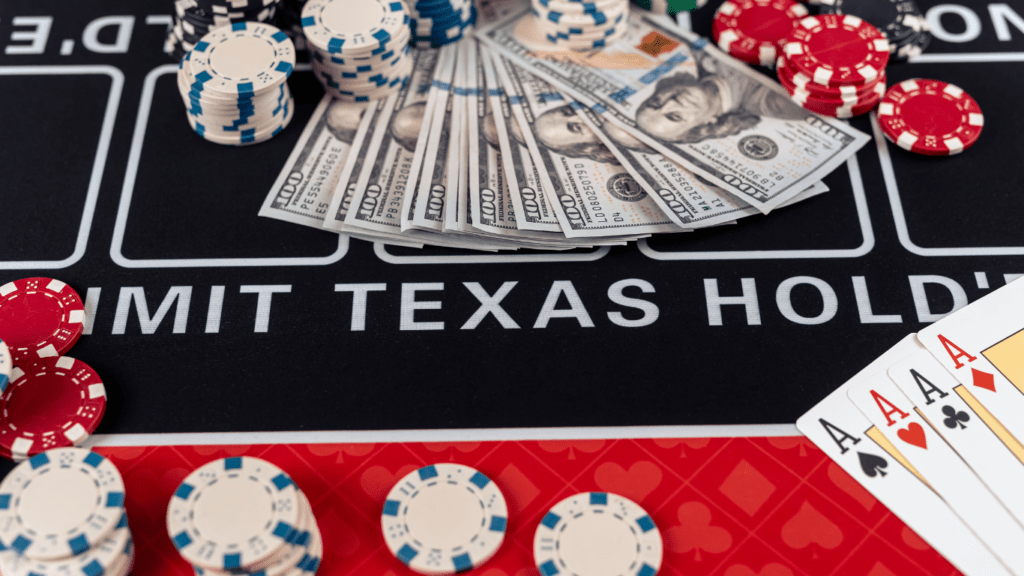Understanding High-Rollers
High-rollers are gamblers who wager large sums of money, often seeking both the thrill of high-stakes action and the potential for substantial financial rewards.
Definition and Characteristics
High-rollers, also known as whales, typically make extremely large bets in casinos. They usually enjoy exclusive perks like:
- personalized services
- luxury accommodations
- high credit limits
Besides financial capacity, high-rollers possess a willingness to take significant financial risks compared to average gamblers. Many high-rollers are experienced players with a strong understanding of game strategies, probability, and odds, which enables them to handle the pressure and make calculated decisions.
The Appeal of High-Stakes Gambling
The allure of high-stakes gambling lies in the excitement and potential for huge wins. For high-rollers, this environment offers an adrenaline rush that’s hard to replicate elsewhere. Exclusive status, elite treatment, and enhanced gaming experiences contribute to the appeal. Casinos cater to high-rollers by offering private gaming rooms and personalized attention. The combination of risk, adrenaline, and luxury creates a unique experience that draws high-rollers back to the tables.
Assessing Risk and Reward
In high-stakes gambling, understanding how to balance risk and reward is crucial. Carefully assessing this balance allows high-rollers to optimize their gaming strategies and maximize their returns.
Calculating Potential Gains and Losses
Calculating potential gains and losses requires a keen understanding of probability and odds. To do this, I constantly consider the expected value (EV) which is calculated by multiplying the potential payoff by the probability of winning and subtracting the cost of playing. For example, if there’s a 20% chance of winning $10,000 with a $1,000 bet, the EV would be $1,000. A positive EV indicates a favorable gamble, while a negative one suggests reassessment.
Additionally, bankroll management plays a crucial role. By determining the percentage of my total bankroll to risk per game, I create a safety net against adverse outcomes. Sticking to these calculated limits helps maintain financial stability.
Psychological Factors at Play
Psychological factors significantly influence decision-making in gambling. Recognizing these elements is essential to maintaining a rational approach. During high-stakes play, adrenaline and excitement can cloud judgment, leading to impulsive actions. I counteract this with self-awareness and discipline, analyzing my emotional state before making big bets.
Furthermore, cognitive biases like the gambler’s fallacy or overconfidence can skew risk perception. To counter these, I constantly remind myself of each game’s independent nature and stay grounded in statistical realities. Keeping emotional biases in check helps to maintain focus on strategic gameplay.
Strategies for Risk Management

Navigating high-stakes gambling requires effective risk management to safeguard financial health and maximize rewards. Implementing clear strategies enhances long-term gambling success and enjoyment.
Setting Limits and Boundaries
Establishing financial boundaries is essential for stable high-stakes gaming. I determine a maximum loss amount before gambling sessions begin, with a fixed percentage of my bankroll designated for each game. These caps protect my financial standing when luck doesn’t favor me. I also leverage time limits to ensure my gameplay remains focused and doesn’t stray into impulsivity. Adhering to set boundaries helps me make rational decisions even during thrilling moments at the table.
Diversification of Bets
Spreading bets across various games minimizes potential losses by reducing reliance on a single outcome. I explore a mix of high-risk and low-risk games to balance the overall risk profile. This diversification prevents me from placing all hopes on one result, and instead, keeps my wagering portfolio adaptable and resilient. By engaging in different game types, I gain insights into varied strategies and maintain a dynamic approach to my gambling pursuits.
Tools and Resources for High-Rollers
High-rollers thrive by leveraging specific tools and resources that refine their gambling strategies. Access to valuable data and expert insights enhances both outcomes and gaming experiences.
Utilizing Data and Analytics
- Leverage advanced data analytics to improve decision-making in gambling.
- Data-driven insights help identify trends and projections for more informed wagering.
- Casinos frequently employ sophisticated algorithms to monitor patterns, but high-rollers can access independent analytics platforms to analyze odds and probabilities.
- Using predictive models and statistical software offers an edge by calculating expected values accurately.
- Hhistorical performance data aids in crafting strategies that align with personal gaming styles and risk tolerances.
Professional Advice and Coaching
Seek professional advice to maximize gambling potential. High-rollers often engage with experienced coaches and consultants who offer tailored guidance. These professionals provide insights into game strategies, financial management, and psychological resilience. For instance, a seasoned coach can assist in developing disciplined bankroll management techniques and navigating complex game scenarios. Access to exclusive workshops, seminars, or one-on-one sessions fortifies knowledge, allowing gamblers to approach high-stakes tables with confidence and clarity.
The Role of Discipline in High-Stakes Gambling

Discipline acts as a cornerstone in high-stakes gambling, providing a framework that balances thrill and financial security. High-rollers who maintain disciplined gambling behaviors often enhance their strategic edge and safeguard their bankrolls.
Emotional Control
Remaining calm in the face of wins and losses builds the foundation of emotional control in gambling. Players often find their judgment clouded by emotions like euphoria or frustration which can lead to reckless decisions. By practicing mindfulness and self-awareness, high-rollers can manage these emotions, ensuring a focused approach that aligns with their strategic goals. Monitoring emotional responses and setting time limits on gaming sessions also helps maintain a clear and rational mindset.
Consistent Betting Practices
- Establishing consistent betting practices prevents impulsive betting sprees and aligns with long-term strategy.
- High-rollers who calibrate their wagers based on predefined conditions, such as card count or calculated risk assessments, ensure consistency.
- This approach involves sticking to percentage-based betting relative to the bankroll, avoiding erratic bets driven by momentary confidence or loss rebounding.
- By consistently applying these practices, high-rollers not only preserve their bankroll but also optimize their chances of making methodical, profitable bets.
Common Pitfalls to Avoid
Balancing risk and reward involves more than just strategy; awareness of common pitfalls prevents avoidable mistakes that can hinder long-term success.
Chasing Losses
Gamblers often chase losses, trying to recover with bigger bets after a losing streak. This approach risks depleting one’s bankroll rapidly and exacerbating financial issues. To combat this impulse, I adhere to predetermined loss limits, ensuring losses don’t escalate uncontrollably. By accepting occasional losses as part of the game, I can maintain focus on overall strategy rather than emotional reactions.
Overconfidence and Complacency
Overconfidence is another pitfall high-rollers face, as it can lead to complacency. With past success, there’s a temptation to rely solely on instinct rather than continued analysis and adaptation. I prevent this by constantly reviewing my strategies, staying informed on new techniques, and challenging assumptions. This conscious effort helps keep my gameplay dynamic and less predictable, reducing the likelihood of overconfidence causing costly errors.





